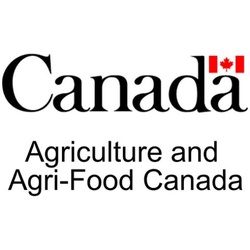
Agricultural Climate Solutions
At a glance
- Maximum amount : 100,000 $
- Unspecified
- Agriculture, forestry, fishing and hunting
- Canada
- For-profit business
- Sole proprietorship
- All revenue ranges
- All organization sizes
- Rural or Northern Residents
Overview
Get a grant of up to $100,000 when you partner with agricultural non-profits, Indigenous organizations and environmental groups in your province on a project that stores carbon and/or reduces greenhouse gases.
Activities funded
This grant supports initiatives aimed at enhancing climate resilience in agriculture through innovation and collaboration among farmers, scientists, and other sector partners. The eligible activities focus on adopting practices that will reduce greenhouse gas emissions and improve environmental sustainability.
- Development and testing of beneficial on-farm practices through collaborative efforts in Living Labs.
- Adoption of beneficial management practices (BMPs) that sequester carbon on farms.
- Projects that support the mitigation of greenhouse gas emissions in agricultural settings.
Eligibility
Eligibility for this grant is determined by specific participation in agricultural activities and involvement with climate solutions.
- Applicants must be engaged in farming activities.
- Applicants must be interested in adopting or testing beneficial management practices focused on climate resiliency.
- The project must aim to sequester carbon, reduce greenhouse gas emissions, or deliver other environmental benefits.
Who is eligible?
This grant targets individuals, organizations, and partnerships involved in the agriculture sector aiming to enhance climate resilience and reduce greenhouse gas emissions through innovative practices.Eligible expenses
This grant supports activities focused on developing and implementing farming practices to combat climate change. The eligible projects emphasize carbon sequestration, reducing greenhouse gas emissions, and enhancing climate resiliency through collaborative efforts.
- Co-development and testing of beneficial on-farm practices by farmers, scientists, and sector partners.
- Adoption of beneficial management practices (BMPs) that facilitate carbon storage and reduce greenhouse gas emissions on farms.
- Investment in natural climate solutions in collaboration with NRCan's and ECCC's related programs.
Eligible geographic areas
This grant is administered by Agriculture and Agri-Food Canada in collaboration with other Canadian federal bodies. It does not specify eligible geographical areas, suggesting it may be open to applicants across Canada.
Selection criteria
- Demonstrated alignment with the objectives of the Agricultural Climate Solutions program - Potential to sequester carbon, reduce greenhouse gas emissions, and deliver environmental benefits - Ability to implement innovative farming practices to tackle climate change - Capacity to collaborate with farmers, scientists, and sector partners in developing beneficial on-farm practices - Feasibility and scalability of proposed on-farm climate action initiatives - Potential impact on enhancing climate resiliency in the agricultural sector - Alignment with the overall goals of the Natural Climate Solutions Fund and contributions towards Canada's greenhouse gas reduction targets
How to apply
Review Eligibility
Register with AAFC
- Create an account with Agriculture and Agri-Food Canada if you do not have one.
- Provide necessary organizational details during registration.
Prepare Application
- Develop a comprehensive project proposal detailing farming practices that address climate change.
- Include information on how the project will sequester carbon, reduce greenhouse gas emissions, and provide environmental benefits.
Collaborate With Partners
- Identify and engage with relevant partners such as farmers, scientists, and other stakeholders.
- Develop and document collaborative strategies for project implementation.
Compile Supporting Documents
Submit Application
- Access AAFC's online submission portal to upload the complete proposal and all supporting documents.
- Verify that all application details are correct and complete the required fields in the online form.
Confirmation and Follow-Up
- Receive confirmation of submission via email, containing your application tracking number.
- Keep the confirmation email for your records and note any follow-up actions or timelines provided by AAFC.
Additional information
Here are additional relevant details for this grant:
- The program is a collaborative effort involving multiple federal departments, showcasing a comprehensive governmental approach to climate solutions.
- The grant supports practices that not only tackle emissions but also enhance overall environmental well-being.
- The ACS program aligns with broader national initiatives such as the 2 Billion Trees program and contributes to Canada's commitment to reduce greenhouse gas emissions.
Frequently Asked Questions about the Agricultural Climate Solutions Program
What is the Agricultural Climate Solutions?
How much funding can be received?
What expenses are eligible under Agricultural Climate Solutions?
What is the deadline to apply?
Is the Agricultural Climate Solutions a grant, loan, or tax credit?
Who are the financial supporters of the Agricultural Climate Solutions?
Who is eligible for the Agricultural Climate Solutions program?
Who can I contact for more information about the Agricultural Climate Solutions?
Where is the Agricultural Climate Solutions available?
More programs like this

AgriScience Program – Clusters
Agriculture and Agri-Food Canada (AAFC)
AgriCompetitiveness Program
Agriculture and Agri-Food Canada (AAFC)
Farm Equipment Financing
Farm Credit Canada (FCC)
Women Entrepreneur Program
Farm Credit Canada (FCC)
AgriAssurance Program – National Industry Association Component
Agriculture and Agri-Food Canada (AAFC)
African Swine Fever Industry Preparedness Program (ASFIPP) - Welfare Slaughter and Disposal Stream
Agriculture and Agri-Food Canada (AAFC)
AgriRisk Initiatives - Research and Development Contribution Funding
Agriculture and Agri-Food Canada (AAFC)
AgriRisk Initiatives - Microgrants Funding
Agriculture and Agri-Food Canada (AAFC)
AgriScience Program – Projects
Agriculture and Agri-Food Canada (AAFC)